Yash Parag Butala
OmniACT: A Dataset and Benchmark for Enabling Multimodal Generalist Autonomous Agents for Desktop and Web
Feb 28, 2024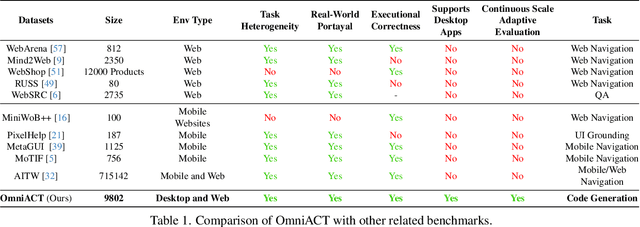
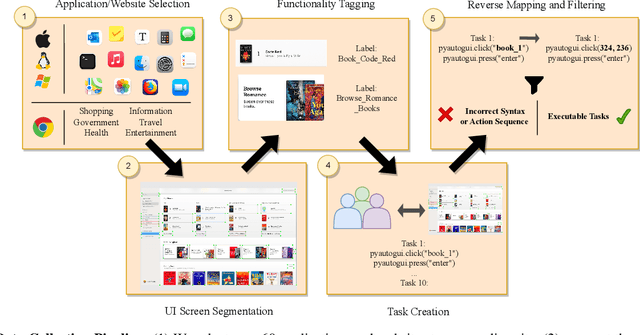
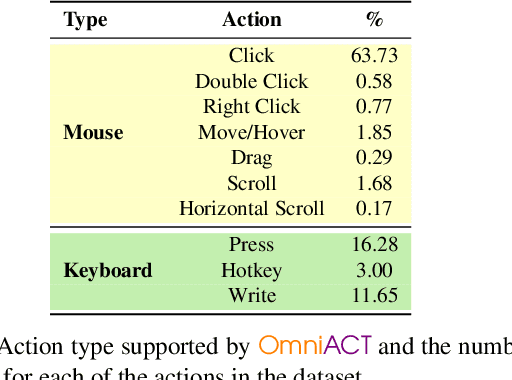
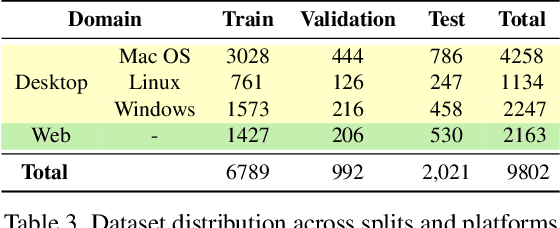
Abstract:For decades, human-computer interaction has fundamentally been manual. Even today, almost all productive work done on the computer necessitates human input at every step. Autonomous virtual agents represent an exciting step in automating many of these menial tasks. Virtual agents would empower users with limited technical proficiency to harness the full possibilities of computer systems. They could also enable the efficient streamlining of numerous computer tasks, ranging from calendar management to complex travel bookings, with minimal human intervention. In this paper, we introduce OmniACT, the first-of-a-kind dataset and benchmark for assessing an agent's capability to generate executable programs to accomplish computer tasks. Our scope extends beyond traditional web automation, covering a diverse range of desktop applications. The dataset consists of fundamental tasks such as "Play the next song", as well as longer horizon tasks such as "Send an email to John Doe mentioning the time and place to meet". Specifically, given a pair of screen image and a visually-grounded natural language task, the goal is to generate a script capable of fully executing the task. We run several strong baseline language model agents on our benchmark. The strongest baseline, GPT-4, performs the best on our benchmark However, its performance level still reaches only 15% of the human proficiency in generating executable scripts capable of completing the task, demonstrating the challenge of our task for conventional web agents. Our benchmark provides a platform to measure and evaluate the progress of language model agents in automating computer tasks and motivates future work towards building multimodal models that bridge large language models and the visual grounding of computer screens.
$FPDM$: Domain-Specific Fast Pre-training Technique using Document-Level Metadata
Jun 09, 2023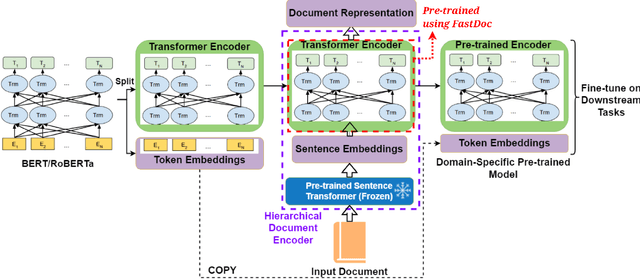

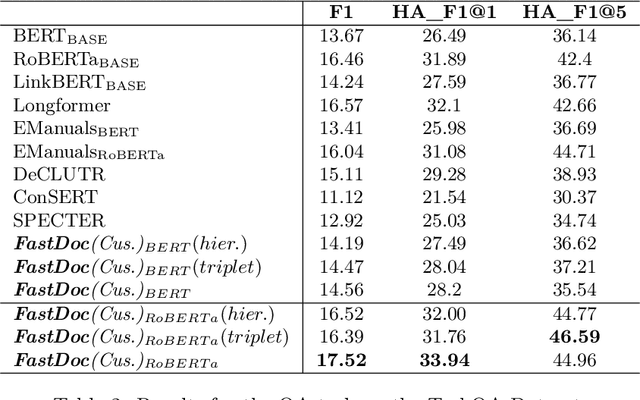
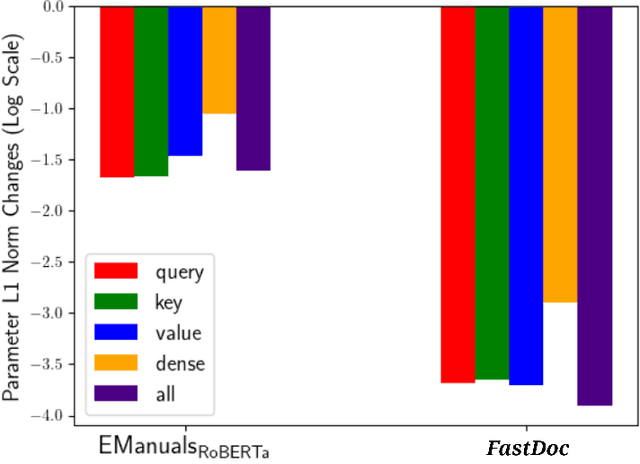
Abstract:Pre-training Transformers has shown promising results on open-domain and domain-specific downstream tasks. However, state-of-the-art Transformers require an unreasonably large amount of pre-training data and compute. In this paper, we propose $FPDM$ (Fast Pre-training Technique using Document Level Metadata), a novel, compute-efficient framework that utilizes Document metadata and Domain-Specific Taxonomy as supervision signals to pre-train transformer encoder on a domain-specific corpus. The main innovation is that during domain-specific pretraining, an open-domain encoder is continually pre-trained using sentence-level embeddings as inputs (to accommodate long documents), however, fine-tuning is done with token-level embeddings as inputs to this encoder. We show that $FPDM$ outperforms several transformer-based baselines in terms of character-level F1 scores and other automated metrics in the Customer Support, Scientific, and Legal Domains, and shows a negligible drop in performance on open-domain benchmarks. Importantly, the novel use of document-level supervision along with sentence-level embedding input for pre-training reduces pre-training compute by around $1,000$, $4,500$, and $500$ times compared to MLM and/or NSP in Customer Support, Scientific, and Legal Domains, respectively. Code and datasets are available at https://bit.ly/FPDMCode.
 Add to Chrome
Add to Chrome Add to Firefox
Add to Firefox Add to Edge
Add to Edge